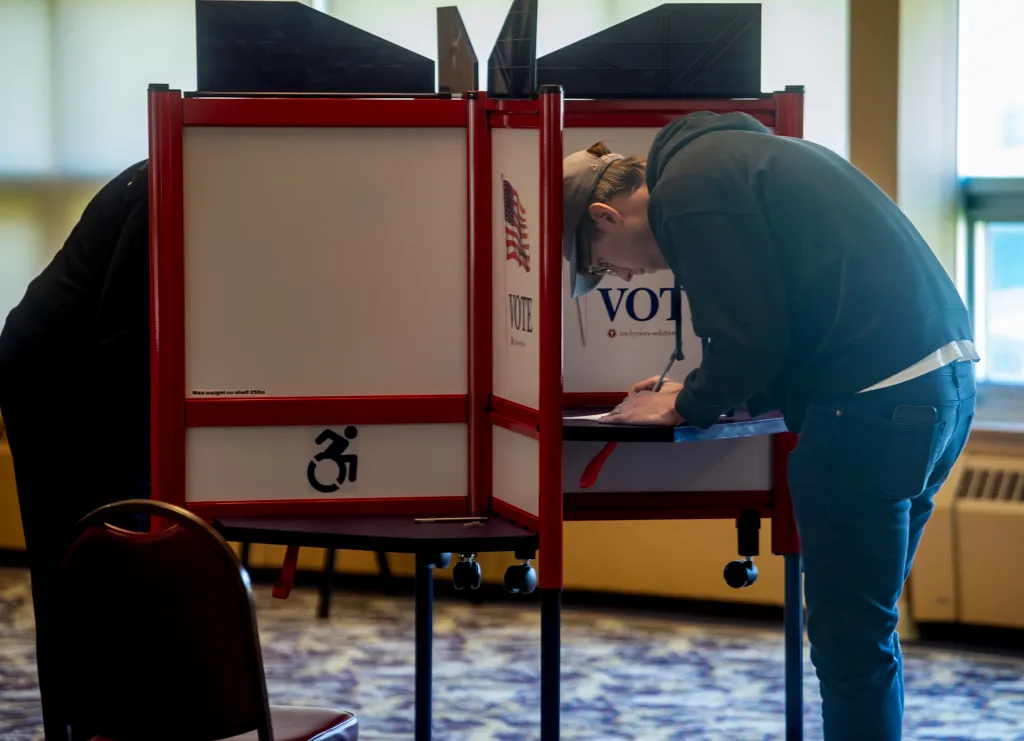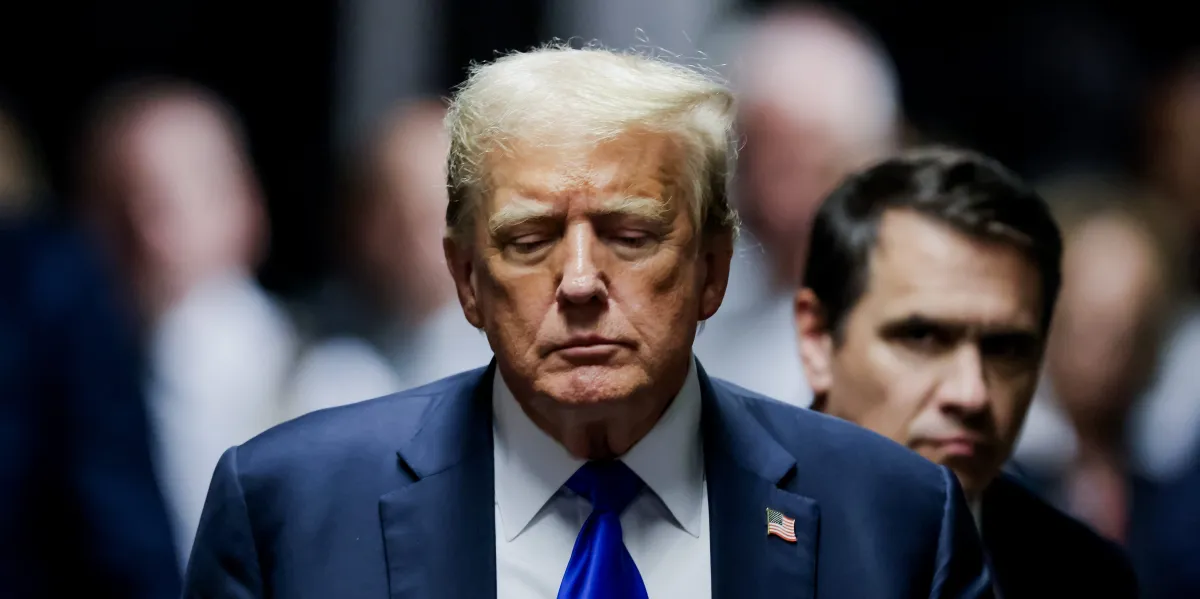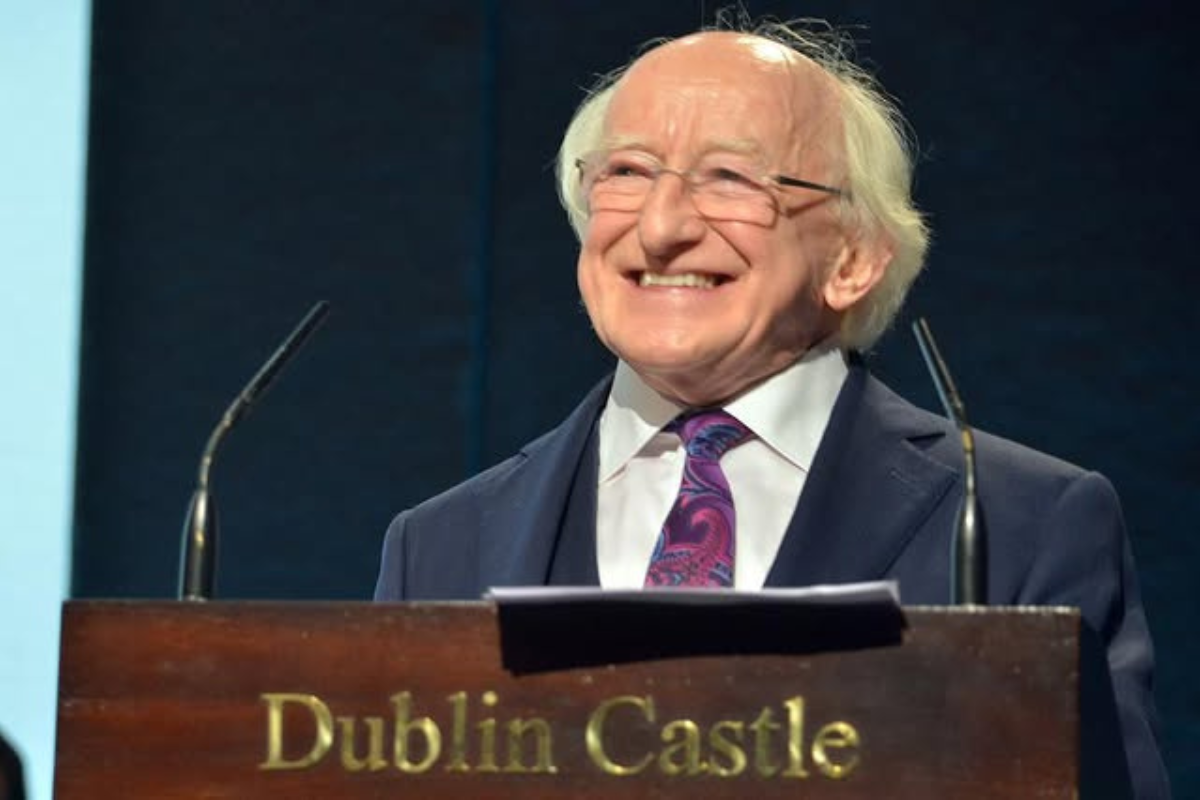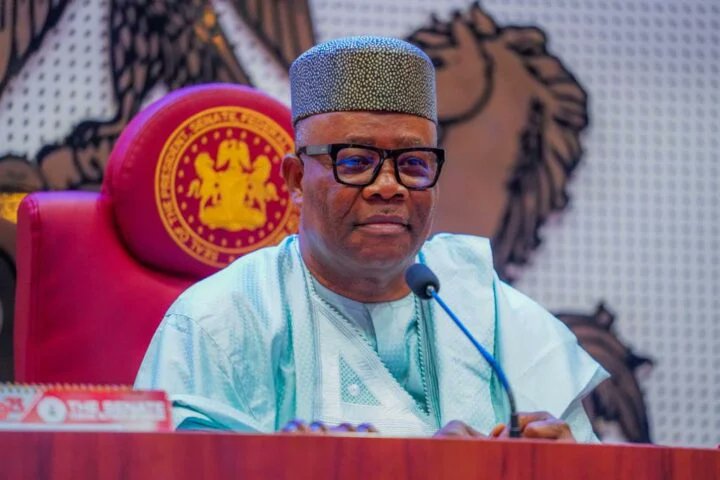Copyright The New York Times
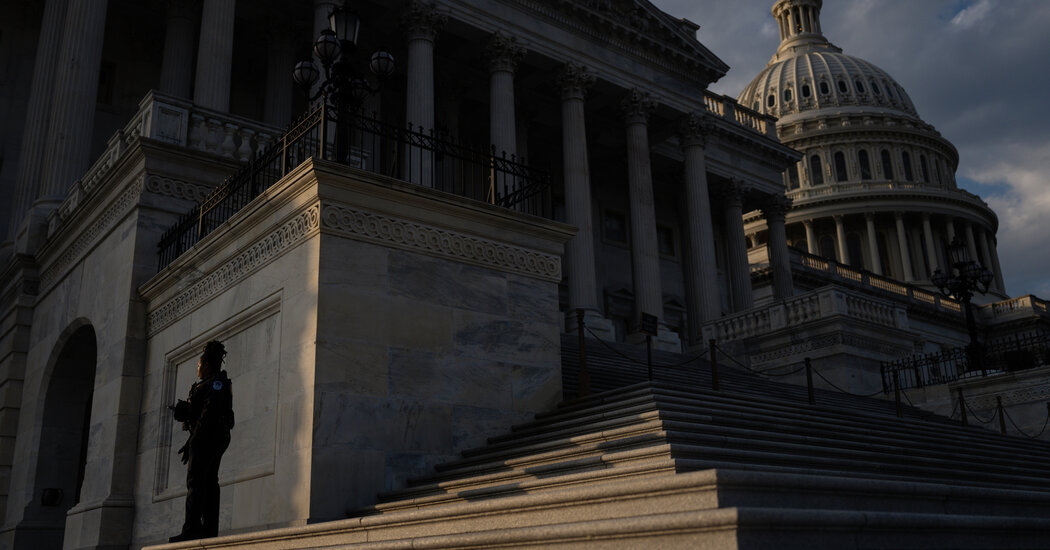
Andrew here. We’re thinking a lot about some news that happened overnight: SoftBank sold its entire stake in Nvidia, worth about $5.8 billion. That move comes as Masa Son, Softbank’s chief, has gone all in on investing in OpenAI with a commitment of $30 billion. It is fascinating to consider whether Son believes there is more future value in OpenAI than in Nvidia. We’ll be discussing all of these crosscurrents at the DealBook Summit on Dec. 3 with our guests, including Dario Amodei, a co-founder of Anthropic. (Interestingly, The Wall Street Journal reported Tuesday that Anthropic plans to break even by 2028.) We hope you’ll join us. Waiting for a return to normality Business and markets are on tenterhooks as the government shutdown, now approaching day 42, appears most likely to end this week. But the uncertainty brought on by the shutdown seems bound to linger for a while yet, especially for travelers and those reliant on Obamacare health insurance. The latest: The Senate voted 60-40 to formally approve legislation to reopen the government, with a key group of centrist Democrats siding with Republicans in favor of the measure. The House must now reconvene, after being on recess for nearly two months, to consider passing the legislation. One hitch: Some legislators’ returns to Washington could be affected by delays brought on by F.A.A.-mandated cuts to flight schedules. President Trump indicated he would sign the legislation, calling it “very good.” Recriminations are still flying among Democrats. Politicians of all stripes attacked the compromise, saying it ended their fight without securing an extension of federal health insurance subsidies set to expire at year-end. It’s worth noting, however, that a bigger set of Democrats had been privately searching for a way to end the stalemate, with the breakaway group consisting of lawmakers who are retiring or not up for election next year. And some Democrats say the fight has exposed Republicans to attacks on their health care policy in next year’s midterms, given that voters generally appear to side with the Democratic position on the subsidies. What will happen to health care costs? While the centrists who brokered the end to the shutdown pointed to a promised vote on renewing the insurance tax credits, several prominent Republicans instead appear focused on alternatives like creating new health savings accounts. The one apparent certainty that lawmakers are conceding privately: Millions of Americans are probably going to see a major rise in their premiums in 2026. Air travel is also going to be a mess for a while. An F.A.A. mandate requiring reduced traffic at 40 major airports remains in force, despite Senate passage of the bill. Transportation Secretary Sean Duffy told Fox News that a return to normal levels would probably take days as airlines resolved a series of bottlenecks. Another question mark is when enough air traffic controllers will come back to work to handle the resumption of pre-shutdown flight levels. Trump threatened to “substantially” dock the pay of controllers who didn’t return immediately. HERE’S WHAT’S HAPPENING SoftBank sells off its Nvidia holdings. In announcing better-than-expected earnings on Tuesday, the Japanese technology investor unexpectedly said it had divested its stake in Nvidia, the chipmaker behind the artificial intelligence boom, for $5.8 billion. SoftBank executives said the move would help the company finance its extensive investments elsewhere in the A.I. world, including a huge commitment to OpenAI. Meta’s chief A.I. scientist reportedly plans to leave. Yann LeCun, a pioneer in the field, will create his own start-up in the coming months, according to The Financial Times. His departure is the latest shake-up at Meta’s A.I. operations, with the tech giant having spent millions on talent and infrastructure to overhaul the division to catch up with rivals including OpenAI and Google. Visa and Mastercard let merchants reject reward-point cards. The credit card giants agreed to end a decades-old rule requiring merchants to accept all cards in their networks, opening a path to retailers rejecting rewards cards that carry higher transaction fees. The move has infuriated some big banks, according to The Wall Street Journal — but retailers are also under pressure to keep accepting popular cards or risk losing sales. Here’s why: Borrowing has soared. In recent months, stock investors — especially retail traders — have been speculating increasingly with borrowed funds. The same is now happening in crypto, where an extremely high-risk variation of derivatives trading has gained popularity. Last month, open interest in Bitcoin — the total value of outstanding derivative positions — hit a record $94 billion, up from roughly $35 billion in the same period a year ago. The latest rage in crypto investing is “perp” contracts, a kind of futures instrument that never expires. These products, which Coinbase introduced in the U.S. in July, give traders the leverage to amplify gains or losses by as much as 1,001-fold. These leveraged bets can unwind fast, however, setting off a “liquidation cascade,” Emiliano Pagnotta, a finance professor at Singapore Management University, told DealBook. Analysts say that is what happened last month during a $19 billion crypto sell-off, the largest ever recorded. Since then, crypto traders have been more cautious making leveraged bets. That could calm the market, and also take the steam out of future rallies. “Everyone is more reluctant,” Vetle Lunde, head of research at crypto analytics firm K33, said. Analysts are watching DATs, too. Digital Asset Treasury companies are listed businesses that buy and hold huge amounts of Bitcoin or other tokens on their financial balance sheets. The companies’ idea is to convince investors that investing in the company’s shares is akin to investing in crypto. The strategy was pioneered by Michael Saylor, the Bitcoin evangelist and chairman of Strategy, and has since been copied by the Trump family and more than 200 publicly listed companies — many of which otherwise have no clear tie to the crypto industry. Earlier this year, DATs fueled a crypto rally when the companies became “the most significant” buyers of the digital assets, Lunde said. But with Bitcoin and other tokens falling in value, these firms’ share prices are sinking too. Some are responding by loading up on volatile, niche crypto assets “to boost their stock,” said Adam Morgan McCarthy, an analyst at Kaiko, a market research firm. “It’s never going to last.” Buffett goes quiet The end of the Warren Buffett era at Berkshire Hathaway is drawing closer. The billionaire, who turned 95 this year, wrote in his latest message to the conglomerate’s shareholders that he’s getting ready to stop writing his famous February letters — the vehicles of folksy wisdom about the markets, morality and more — and end his lengthy appearances at Berkshire investor meetings. The move was meant to help solidify people’s perception that Greg Abel, his handpicked successor, will be Berkshire’s leader at the end of the year. More about Abel from Buffett’s letter: He understands many of our businesses and personnel far better than I now do, and he is a very fast learner about matters many C.E.O.s don’t even consider. I can’t think of a C.E.O., a management consultant, an academic, a member of government — you name it — that I would select over Greg to handle your savings and mine. Greg understands, for example, far more about both the upside potential and the dangers of our P/C insurance business than do a great many longtime P/C executives. My hope is that his health remains good for several decades. With a little luck, Berkshire should require only five or six C.E.O.s over the next century. It should particularly avoid those whose goal is to retire at 65, to become look-at-me rich or to initiate a dynasty. And while Buffett is accelerating a giveaway of his Berkshire shares to his children’s philanthropic foundations — he donated about $1.3 billion worth of stock on Monday — he added that he planned to retain a “significant” amount of his Class A equity in Berkshire until shareholders feel more comfortable with Abel as C.E.O. Could doomsaying derail progress? Decades of dire warnings about the planet’s survival might have sapped enthusiasm for confronting the problem head-on, Bill Gates suggested last month. There is a “near-universal belief in climate change,” according to a new Harris Poll conducted for the Milken Institute. It surveyed 7,000 people in seven countries, including the U.S. But, 65 percent of those polled felt “anxious about climate solutions and unable to envision practical action,” the authors wrote. THE SPEED READ Deals Goldman Sachs is set to earn a record $110 million fee for advising Electronic Arts on its sale to investors including Jared Kushner’s Affinity Partners. (FT) In private credit: BlackRock is on the hook for the majority of a $150 million loan it made to a now-bankrupt home improvement company; and the collapse of Tricolor, an auto parts lender, was set off by a phone call from JPMorgan Chase. Politics, policy and regulation “‘Sold POTUS a bill of goods’: WH furious with Pulte over 50-year mortgage” (Politico) President Trump said that India and Switzerland were negotiating trade deals with the U.S. to cut their sky-high tariffs. (Bloomberg) Best of the rest How Beijing stopped a tiny independent Chinese film festival in New York, even relying on intervention from relatives back in China. (NYT) “The A.I. Cold War That Will Redefine Everything” (WSJ) We’d like your feedback! Please email thoughts and suggestions to dealbook@nytimes.com.
